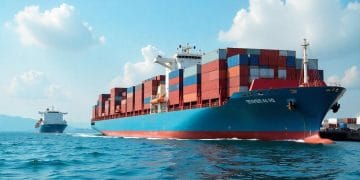China has urged the European Union to unite against what it describes as “unilateral pressure” from the United States, following the tariffs imposed by President Donald Trump on Chinese goods. During a meeting with Spanish Prime Minister Pedro Sanchez in Beijing, President Xi Jinping emphasized the need for China and the EU to work together in addressing ongoing trade challenges with the U.S.
“China and Europe should fulfill their international responsibilities and stand together against unilateral pressure,” Xi stated, highlighting that such collaboration is crucial to protect mutual interests and promote fairness in global trade.
Prime Minister Sanchez, acknowledging Spain’s significant trade deficit with China, expressed that trade tensions should not hinder the overall relationship between China and the EU. “We must not let trade issues prevent the growth of our relationship,” Sanchez said, noting that Spain imports approximately $50 billion worth of goods from China each year.
In a separate statement, Chinese Foreign Ministry spokesperson Lin Jian reiterated Beijing’s stance, warning that “trade disputes have no winners.” Lin emphasized that while China does not seek conflict, it is committed to defending its interests if the U.S. continues with its tariff measures. “If the U.S. insists on these tariffs, China’s response will be resolute,” Lin stated.
This call for European solidarity follows the escalation of trade tensions between the U.S. and China. Earlier this week, China imposed retaliatory tariffs of 125 percent on certain U.S. goods in response to U.S. tariffs. China’s Commerce Ministry also urged the U.S. to “meet halfway,” noting that tariffs could significantly impact the global economy, while stressing that dialogue remains an option.
The U.S. has targeted a broad range of Chinese products with tariffs, including a 145 percent levy on Chinese imports, as well as a 20 percent tax on goods from the EU, which was temporarily suspended following European countermeasures. In addition, the U.S. has imposed separate tariffs on steel, aluminum, and automobiles.
The intensifying trade tensions have prompted China to seek support from the global community, including India. China has recently called for greater cooperation with India, suggesting the two countries should collaborate in the face of U.S. tariffs, especially as developing nations are disproportionately affected. Chinese officials have encouraged enhanced economic and trade cooperation between India and China.
India, for its part, has refrained from retaliating against U.S. tariffs, despite concerns over potential losses in sectors like seafood and vehicles. Instead, India is focusing on negotiating adjustments in trade terms, opting to avoid escalation with the U.S.
As the situation continues to develop, diplomatic efforts are underway to address the growing trade tensions between the world’s largest economies.
The latest in supply chain logistics news is now on The Supply Chain Report. Visit ADAMftd.com for free tools related to international trade.
#ChinaEURelations #USTariffs #EconomicImpact #GlobalTradePolicy #ChinaTrade #EUTrade #TariffResistance

















